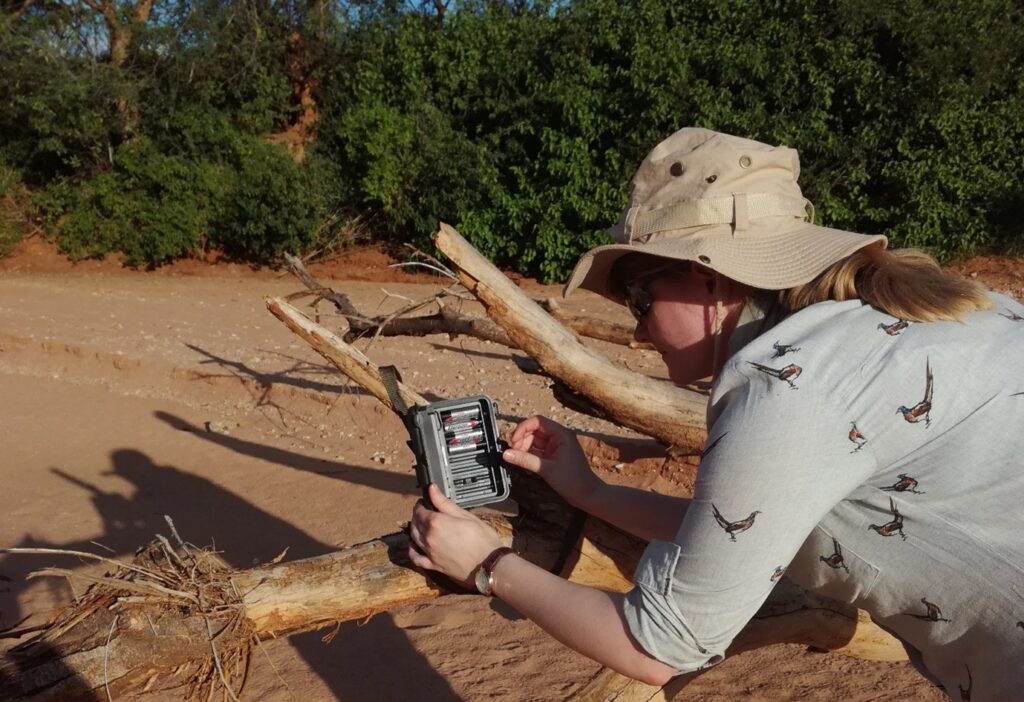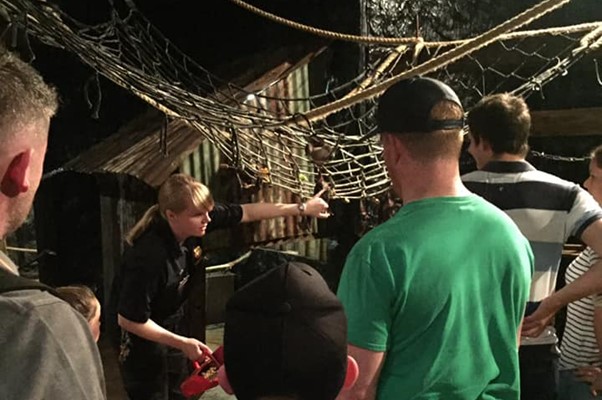Hello, my name is Emily Legge and I have just started my first year as a PhD student. I am in Cohort 4 of the QUADRAT DTP and am based at Queen’s University, Belfast within the School of Biological Sciences. My project is titled ‘the effect of changing soundscapes on trophic interactions’ and is a CASE studentship working with Ulster Wildlife. The interactions between predators and prey shape ecosystems. One of the cues that prey use to detect predators is noise, which humans produce a lot of! I will be exploring what the current research suggests about whether mammals respond fearfully to the noise humans produce. I will also be conducting field experiments in the UK to investigate the effect human noise has on the trophic interactions of our mammals. Given the rarity of some of our species (e.g. red squirrels, pine martens), understanding how living alongside humans affects them is going to be vital in our conservation efforts.

I grew up in the English countryside and from a young age had a fascination with the natural world. I always knew I wanted to work with animals in some capacity so decided to complete an undergraduate degree (BSc) in Zoology at the University of Leeds. While there I developed a great interest in how scientists can help conserve modern wildlife and so went on to complete my masters degree (MRes) in Wildlife Conservation at the University of Southampton. There I worked in collaboration with Marwell Wildlife to explore three years of mammal data collected by community patrols in northern Kenya. I investigated trends in the data and mapped it against environmental variables. During my degrees I completed a range of field work experiences across the UK, Kenya, South Africa and Namibia. Before moving on to start my PhD I worked as an ecologist conducting dawn/dusk bat surveys, then as a conservation data officer for Fauna & Flora International.
I am greatly interested in using science communication tools to enable the general public to take actions that help conserve local wildlife. Outside of my academic work I set up a youtube channel (FeraForus) to spread awareness of UK wildlife species and how we can help them. In fact, it was the act of setting up this channel that led me down the path to applying for my PhD project. Seeing how many of our native species the general public knows little about sparked my desire to uncover more knowledge about them. I have also recently been awarded funding to host in person workshops that cover UK wildlife, equipment scientists use to monitor species, and how we can all get involved in conservation. In 2023 I will be trialing these workshops with schools and other community groups. In my free time I enjoy creative writing, drawing, and volunteering for a local animal sanctuary.






















































